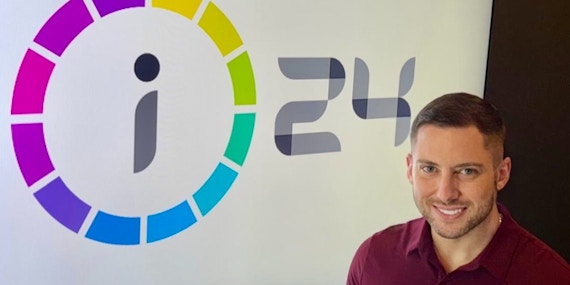Customers
How One-Man Consultancy, Think Clearly, Uses MoonClerk To Capture New Income
Dodd Caldwell
July 21, 2020

Mathias Vestergaard talks with us about his business, Think Clearly, and his experiences using MoonClerk.
Can you tell us a little about Think Clearly?
Think Clearly is a one-man consultancy that helps people think clearly. I work with leaders and innovators and help them become even more amazing. The process looks a bit like coaching: I sit down with my clients on a regular basis and we have conversations.
If a therapist works to identify a disorder, treat, and cure it to make crazy people normal, you could say that I work with people who are crazily productive and my job is to help them optimize and amplify to get the most out of their creative and entrepreneurial craziness while limiting the negative implications.
How did you get started?
Having been an entrepreneur since I was a kid, staring companies has always been natural. However, I used to always ask myself, “What can I make in the world?” The answers took me through IT consulting, web development, fashion photography, video, and graphic facilitation. This time I finally changed the question – “If I could have it my way entirely – what do I want to make?”
My answer was essentially this: A personal and intimate consultancy where we have deep conversations about fears and challenges (almost like therapy) but also unlock deep motivations and potential.
What have been some key factors in growing your business?
My business grows in two ways:
– Primarily, through steady word-of-mouth. My clients love what I do and I have super high client satisfaction and client retention. They often refer new people to me.
– Secondly, through my speaking gigs, teaching, guest lectures, open workshops and other formats where a group of people get to experience me directly. Often someone will reach out to me after.
What do you use MoonClerk for?
A portion of my clients are leaders at companies that have their own intricate payment systems which I sometimes have to deal with. But I use MoonClerk for everything else. I use it for the clients who pay using their own credit card or who have a company expense card they can put it on. Some have monthly subscriptions. Others have pay-as-you-go plans.
I also use it to collect voluntary, mini-contributions from my newsletter subscribers.
How did you accept payments before MoonClerk?
Before MoonClerk, I just accepted regular checks in the mail and expensive wire transfers. Most of these traditional methods are slow and prone to errors and additional delays. Delays in payments primary affect my liquidity which can be critical. Errors and problems in the mail also meant that I had to spend extra attention on following up and making sure that payments came through.
What made you decide to use MoonClerk?
I tried the demo and saw how easy it was to create simple forms. I originally planned to build my own Stripe integration directly in my website but haven’t gotten around to it yet 😉
What do you like about MoonClerk?
I love that it is so easy to use. I can easily manage multiple forms and recurring payments and I only get notified if something goes wrong.
How has MoonClerk improved or helped your business?
It has helped me get much better at capturing smaller contributions from clients that I would previously not even bother to ask. Now they can simply click and choose their own amount and boom.
Any advice for others who are in similar industries?
My advice is the same for every company in every industry: Focus on creating real value for someone using whatever you have at your disposal – time, money, infrastructure, talent, knowledge. Use it to create value and worry about revenue later.
Creating value may look very different in each case and you may need to really let go of your existing products. People in emerging economies struggle with inflation – Coca-Cola has a global reach into even the tiniest African village. What if Coke created a global, stable currency? Like bitcoin but less geeky? Perhaps that would create value for someone. What if you smiled more? That would create value for someone.
Creating value doesn’t mean that you will have a viable business. Your costs may be too high. Or the market may not be ready yet. There is no certainty here.
However, what is almost certain is that if you don’t create value your business will never survive for long.


